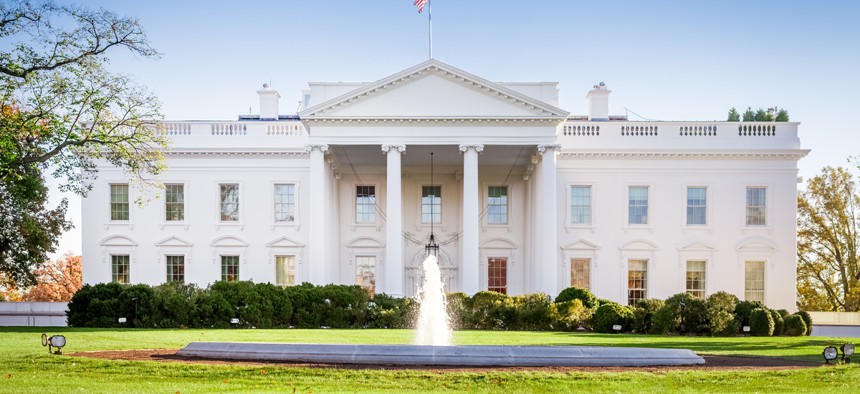White House Touts a Year of AI Initiatives in Roundup Report

turtix/Shutterstock
The Office of Science and Technology Policy released a list of accomplishments in promoting artificial intelligence, including efforts to adopt cutting-edge technologies within the federal government.
One year into the administration’s big push to fuel development of artificial intelligence technologies and boost adoption within government, the White House Office of Science and Technology Policy released a roundup highlighting early achievements.
The report released Wednesday touches on several AI-focused initiatives spearheaded by the administration, most of which center on helping with private sector research and development efforts. Some of the biggest efforts include publishing a set of AI regulatory principles, increasing AI R&D funding in the 2021 budget request, promoting STEM education and training programs and working with international partners.
But the report also details how AI technologies are being used within government to improve services and other mission areas. The final section of the report gets into how federal agencies are embracing “trustworthy AI for government services and missions.”
“The federal government is committed to taking full advantage of AI, when appropriate, in a manner that is consistent with the Constitution and our nation’s values and protective of civil liberties and privacy,” the report states.
To that end, the administration has tapped best practices from the private sector in adopting AI technologies to improve services. That outreach effort culminated in the White House Summit on AI in Government held in September, where some 175 public and private sector AI experts gathered to compare notes on how best to use these budding technologies in government.
The progress report also highlighted inter-agency collaboration, such as the General Services Administration’s AI Center, part of the agency’s Centers of Excellence program. The new AI center teamed with the Defense Department’s Joint Artificial Intelligence Center, or JAIC, in September to help the military identify areas where AI can help meet the mission.
“The intent is both to deliver new AI-enabled capabilities to DOD end users and to build a common foundation of shared data, reusable tools, frameworks, libraries and standards that are essential for scaling the impact of AI across DOD,” the report states, adding, “These efforts can also be leveraged across the non-defense federal agencies.”
As a prime example, the Labor Department joined up with the AI Center of Excellence with a focus on using robotic process automation to improve the acquisition process.
But the JAIC and GSA’s AI Center weren’t the only new shops stood up last year. The Energy Department—a major player in AI research—established its own Artificial Intelligence and Technology Office in September. Central to the agency’s efforts has been the build-up of exascale supercomputers able to handle the calculations necessary for the next generation of AI development.
“When I came to [Energy] two and a half years ago, we were number three in the world in supercomputing—behind China, and interestingly, Switzerland,” then-Energy Secretary Rick Perry said in September. “During the last 30 months we have increased the funding for the supercomputing capacity of America by 45%. We now are back in the position of having the fastest computer in the world.”
Along with new offices, several agencies have released their own AI strategies outline how the technologies can—and should—be adopted departmentwide. Such agencies include the Defense Department, National Institutes of Health and the National Oceanic and Atmospheric Administration. Other agencies with strategies not mentioned in the document include the intelligence community and the National Institute of Standards and Technology.
All of these efforts coalesce at one primary goal: establishing trust in the AI tools used by government agencies.
“As the federal government increases its use of AI to improve the delivery of services to the American people, it is of paramount importance that this be done in a way that builds citizen trust,” the report states. “Such development and use must show due respect for our nation’s values, including privacy, civil rights and civil liberties.”






